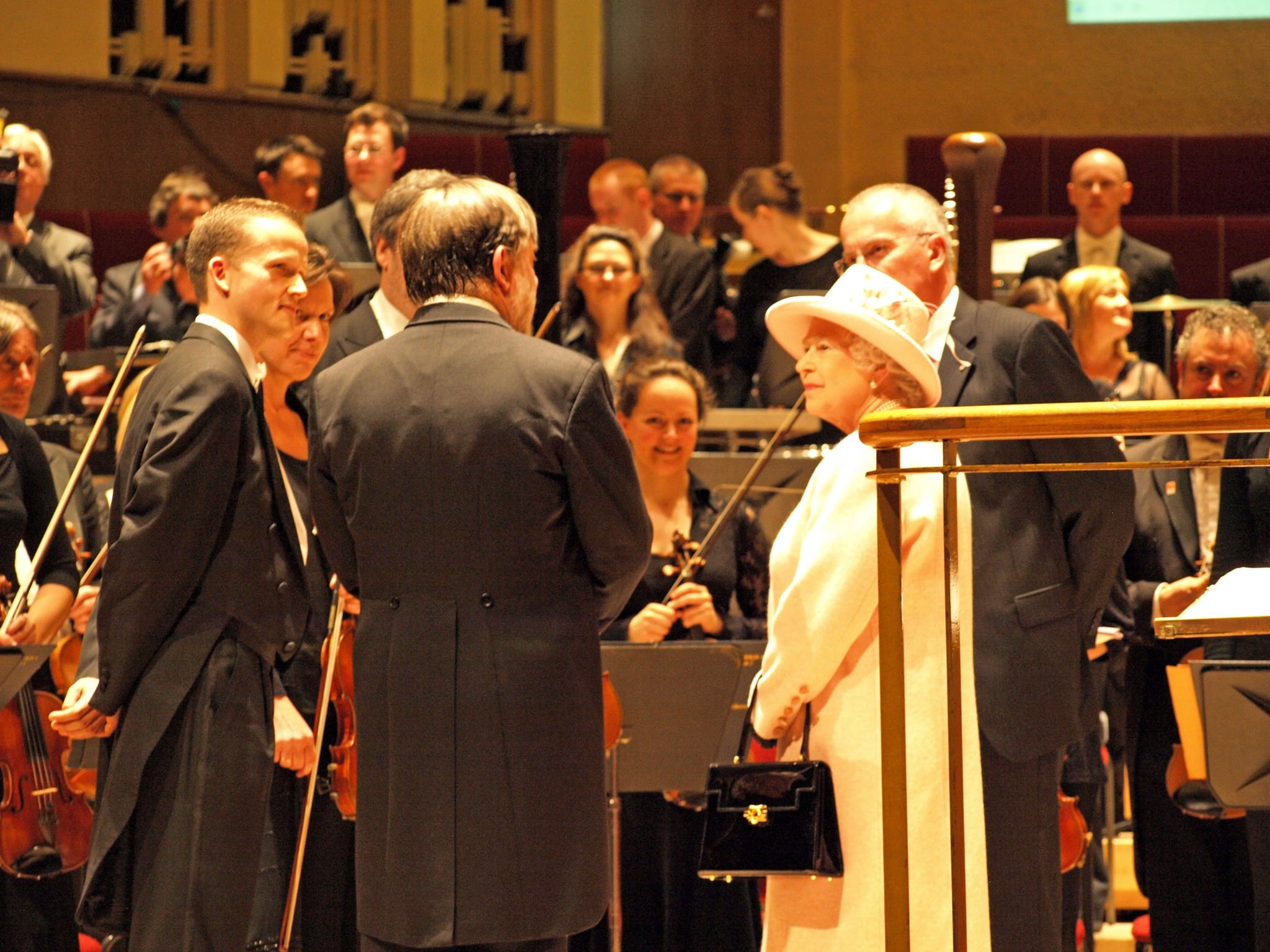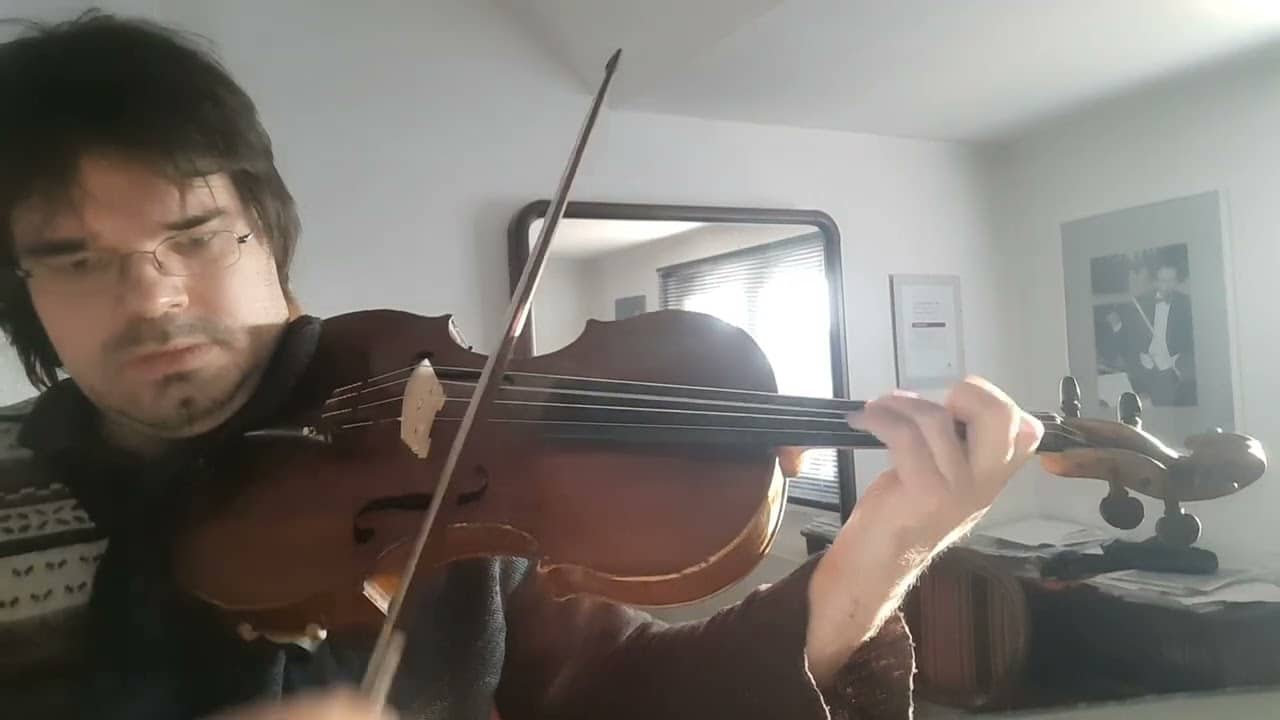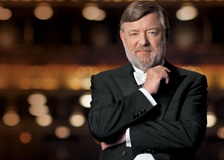America’s senior composer is 75 today
OrchestrasThe indefatigable John Adams, born February 15, 1947, is working on a Shakespeare opera, Anthony and Cleopatra, due to open in San Francisco in September.
He has often spoken of the gulf between what he does as a composer and how Americans perceive what a composer does. He once told me than none of his middle-class, academic neighbours in California had ever set foot in an opera house.
He’s still working to get them in there.
Happy birthday, John.
His best aria?






Gotta give it to him, he’s still working hard. Good subject for an opera; if it gets 1/10th performances that Nixon in China has, he’ll be doing well. Happy returns!
Happy birthday to a great master,and an enchanting,funny ,kind,and brilliant man!Many returns and years of creativity!
Change will not come by what Adams or any other person composes. The problem is systemic and created by our lack of public arts funding. Even a small city like Oldenburg, Germany had more performances last season than Houston, Chicago, San Francisco, Los Angeles, and Washington. It had four times as many as Philadelphia. Almost three times as many as LA. Four times as many as Washington.
Education produces opera supporters. Last season in Germany, there were 36 productions of Hansel and Gretel in 222 performances. It was the second most performed opera after The Magic Flute. In the USA, by contrast, there was not a single children’s opera among the 50 most performed operas.
And don’t give me that hooey about opera not being an American art form. It was once very popular in the States, but during the 1920 and 30s, the rise of cinema was allowed to bury opera and most of our opera houses were eventually abandoned and torn down. We went from Giuseppe Verdi to Sylvester Stallone. Fortunately, all other developed countries established economic policies to preserve the high arts.
Also, making opera more accessible would help.
As you mentioned cinema, I am very much in favour of transmitting live performances of operas to cinemas, as is happening in a number of countries.
Affordable, easily available seats bring in opera lovers over a wider area and new audiences.
I began my opera going life at 18, when I started attending Kiel University in Germany in 1978. The cheapest seats at the local opera house were 3.50 German Marks for the general public, and 1.75 for students.
Even I could afford to go to the opera as often as I liked with these cheap tickets. For the first time I went to the same opera several times – like five evenings in one season for a wonderful La Cenerentola. A grand total of 8.75 Marks, or € 4.38. For FIVE performances!
On many days, when I had enough of classes and books, I would look up that evening’s offering at the “Stadttheater”, and if it was opera, I would go – no matter what opera.
So I wholeheartedly agree: “Affordable, easily available seats” definitely worked for me…
If American concert halls couldn’t sell more than 70 percent of capacity pre-COVID, then how exactly is the problem not enough funding and not enough performances?
Why is it that people expect that whatever art forms are popular in Europe will be equally popular in the United States? If you look at other forms of culture and entertainment, such as film, TV, and sports, tastes of Europeans and Americans are quite different.
Quite so. Very different worlds, in fact. Different doesn’t mean ‘lesser’ or ‘unworthy’. There’s absolutely nothing wrong with sports, unless you’re an elitist snob who thinks the average person is sub par (which I most definitely do not). This is what gives culture a bad name; the idea that if you don’t like it there’s something wrong with you. Well, there’s nothing wrong with people who don’t share our love of opera or high culture. They’ll go to war to save your bony hide every time they’re asked!! This kind of cultural snobbishness makes me physically ill.
Audiences don’t happen by an act of nature; they are created. The 222 performances of Hansel and Gretel last season tells us something. Sadly, US opera companies simply do not have the funds for good audience-building practices.
Actually, audiences do “happen by an act of nature.” Marketing is important, but if there was a corollary between money spent on marketing and other “audience-building practices,” then the attendance problem would have been solved long ago. At the end of the day, there needs to be an inherit demand for your product, whether that’s opera, sports, a movie, etc. If that’s not there, then there’s nothing you can do to will an audience.
And why is it that the government should cover the cost to do this audience-building? Why does it have to solve the attendance problem opera and orchestras have?
“If that’s not there, then there’s nothing you can do to will an audience.”
As famous impresario Sol Hurok once explained: ‘If the audience don’t want to come, there’s nothing you can do to stop them’.
I wouldn’t write off cinema as some kind of nuisance which got in the way of opera. It’s intrinsically far more worthy and important than Stallone, who is at the bottom of the heap and the ‘lowest common denominator’ factor. There are many glories of American cinema, too numerous to mention here. Why does it have to be ‘either/or’?
Of course education is essential, on all levels, to preserve the arts.
But it is also a question of cultural identity. In a society where the idea of equality is important, ‘difficult’ arts are quickly seen as ‘elitist’, entirely disconnected from the question of accessibility. The reason that there is so much classical music around in Germany, is because that society considers itself a ‘Kulturnation’, a nation of culture. The same with France, where the arts have a social status as something important to the common good, as in Belgium and the garlic belt. Interestingly, the UK and the USA have a different idea of the identity of the nation, much more ‘practical’ and ‘down to earth’, and both countries had early democratic developments, which stimulated egalitarian thinking, as in the Netherlands which was a very early (more or less) democratic society. The areas where till very late kings and queens ruled, be it literally or symbolically, the arts survived much better in the collective imagination. (How is the status of the arts in Switzerland? I don’t know but I suspect it is comparable with Holland.)
Classical music is very strongly supported in Switzerland at levels similar to Austria and Germany which puts it at the top of the list in Europe. It has seven year-round opera houses which is about one for every one million people, the same ratio as Germany. St. Gallen, for example, has a year-round house for a metro area of 167,000 people.
The UK is far better than the States (though below most of Europe.) London has 5 full-time symphonic orchestras and two year-round opera houses. New York City, by contrast, has one full time symphonic orchestra and only one opera house, The Met, which effectively only has a seven month season. (The summer months are only used for rehearsals.)
Feudalism and the papacy were indeed good at supporting the arts, but in almost all of Europe the rise of bourgeois European nation-states and cultural nationalism walked hand-in-hand. The result is that basically every European country is a Kulturstaat. We thus see that Switzerland with is long relatively democratic history has arts support at the same levels as Austria with its long line of Emperors.
The problem in the USA is that from its inception, its founders–mainly Madison and Hamilton–very consciously created a nation with a system of unmitigated capitalism. This became so deeply rooted politically and culturally that the country has not been able to move to a system of social democracy like all other developed countries have had since WWII. We thus continue with a late 18th century form of government that is becoming increasingly anachronistic and problematic. Imagine what the USA could offer if it too became a Kulturnation, a land that defined itself by its cultural identities rather than dollars.
Interesting, about Switzerland. And all very true about the USA, I fear. Also America is a very strong exporter of pop music, which is copied all over the world, eroding local musical traditions.
If it had been for regular music classes (and music appreciation) in public grade school, I never would have come to classical music, let alone opera. That music teacher was more important to my formation than most others.
I don’t really believe that opera in the USA has been replaced by cinema. For me it has been replaced by Broadway which is the American form of musical theatre.
One problem with opera is that it is difficult to scale down. A good stageing of a Shakespeare play is possible with small means, but for an opera a full orchestra is needed and good singers are not so easy to come by. This is a real problem in the US where much art is created outside of big institutions.
Don’t forget that despite the fact that classical music is certainly rare in the US compared to Europe, the level of US classical musicians is excellent which contradicts the impression that Americans don’t care about classical music.
Pity that Barbers A and C is never done.
America’s senior composer is John Williams, and he turned 90 last week.
Nay,, the *world’s* senior composer is John Williams.
His music has been heard by more people than all other composers, living or dead for the last 50 years, in the world…combined.
If this is referring to film music, that means nothing.
And then there’s Philip Glass who just turned 85.
Not to mention 2 others, John Corigliano and Joan Tower, both 83. Just heard her marvelous new viola quintet!
My review of the concert featuring the Tower premiere is here: https://www.classical-scene.com/2022/02/15/60-minutes/
Since you asked: his best aria, IMO, is Madame Mao’s in Nixon in China. When I walk around the house murmuring “I am the wife of Mao Tsetungggg”, my husband looks at me like I’ve lost it.
If you haven’t heard it, go find it on Youtube. Particularly the Kathleen Kim version from the Met.
Half the aria is the same note repeated over and over.
Like a crazed Communist Turandot.
i first read that comment as ‘Like a crazed communist Trudeau’…
Hah! Best comment of the day! LOL!
Credit to Alice Goodman as well – her libretto made it soar. Two geniuses..
Ho ho….!
Batter My Heart is such an incredibly moving aria. Love John Adams and his work. Hope he has many more years of composing ahead!
He is a visionary and twisted the minimalist movement into something which it didn’t realise it wanted to be. I have been lucky enough to play his music with him conducting many times. I feel incredibly lucky and will never forget these precious moments. Happy Birthday John!
Despite the intensity of Gerald Finley’s performance, I think Adams’s music maunders.
Britten’s setting of the same Donne sonnet achieves more with less.
Sorry, for my previous comment, I seem to have forgotten how to spell my surname.
John Harbison?
You’re all incorrect – America’s Senior Composer is NED ROREM, 98 this year.
And long life to Ned!
Adams: a truly gifted composer with a brilliant technique. He took the style and aesthetics of ‘minimal music’ out of its restricted territory and injected it with traditional elements so that it got some shape and a more expressive dynamics. His music created a typical American sound (which means: including plusses and minusses); and he showed that ‘modern music’ can be more accessible.
His ‘Chamber Symphony’ is one of his best pieces, a hilarious chunk of organised insanity, combining sarcasm with an intense anxiety underneath:
https://www.youtube.com/watch?v=-9VtPVVveb8
An apt expression of the surface of modern life, and particularly American life.
His operas are less good I think, with entirely unsuitable subjects, trying to lift banality to more serious heights (Nixon in China, Dr Atomic) and failing spectacularly. So much better is his Harmonium, based upon poetry of Emily Dickinson:
https://www.youtube.com/watch?v=l-6z-ow6H1c
Isn’t that funny? I actually think “Nixon” is brilliantly handled, while I can’t stand “Harmonium.” Maybe I have to go back and give it another shot. Very much enjoy reading your posts, by the way. Even when I don’t agree, they’re thoughtfully expressed (when not knee-jerking against John Williams or George Crumb). From what I’ve been able to sample, your music’s pretty good too! Best wishes.
Thanks….
With Adams, while acknowledging his mastery, I always have the difficulty to find a reason – aesthetic or psychological or otherwise – for the obsessive repetition of things. The regular ‘beat’ reminds me of pop music, and not of baroque music which also has regular beats. It is a bit like someone trying to hammer-in something the origin of which remains elusive. Effects without a cause, in my opinion.
The repetitions in Harmonium are less conspicuous, maybe that’s why I prefer that piece to the operas where repetition seems to be a means to try to prevent the audience’s attention to sink into a slumber.
You are kidding, right?
I’m also never quite sure.
Sally
America’s senior composer? Love Adams, but if we’re talking senior composer, try Reich or Glass, in all fairness.
Senior composer? Heaven help us if he is.